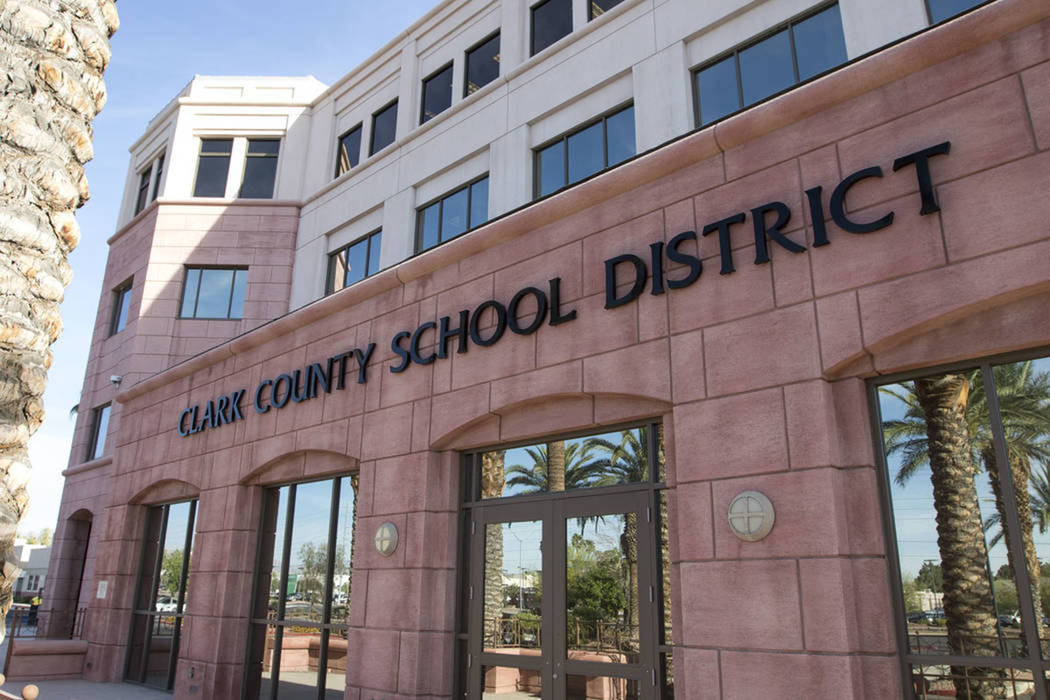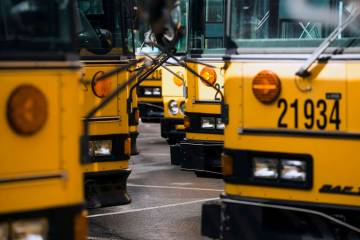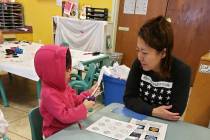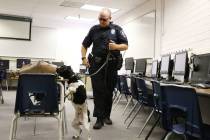3 resolutions for Clark County school officials’ consideration
All week long, friends and acquaintances have been posting selfies from the beginning of the decade for comparison to their current selves. And while there’s no force on this planet strong enough to compel me to post a photo from my sophomore year of high school, I was inspired by this trend to take a look at where the Clark County School District was a decade ago and how it has changed.
In 2010-11, CCSD posted a graduation rate below 60 percent and struggled under the standards of No Child Left Behind. It was also hurting after recession-era cuts of almost $150 million, but it still set lofty goals, like a graduation rate of 85 percent by 2014 and a reduction of the student achievement gap among racial groups by 50 percent. A decade later, the district is at last posting graduation rates north of 85 percent, but the achievement gap persists.
With that in mind, I would like to suggest a few resolutions that district officials might consider for the new decade.
Address disproportionality: In the next decade, CCSD’s No. 1 priority should be resolving the lingering disparities in its schools — both in achievement and discipline. The district has shown progress in academic achievement, but those gains have not been distributed evenly, with this year’s graduation rates showing a downturn for English language learners and Native American students.
And despite changes made in an effort to address the disproportionately high rates of suspension and expulsion for African-American students, as a group they still face higher rates of discretionary discipline than any other. CCSD’s Focus 2024 initiative shows that important incremental goals to addressing these rates are already part of the plan and that parity by the end of the next decade is not an unattainable outcome.
Communicate early and often: After a particularly tumultuous year for staffing matters, CCSD should commit itself to more transparent communication, both with staff and the public. It’s an issue that’s at the forefront of many minds, as School Board members recently gave Superintendent Jesus Jara his lowest marks in his first evaluation for open communication, citing in particular this summer’s closed-door decision to eliminate dean positions.
But the problems are entrenched beyond the top brass. In my short three weeks on the K-12 beat, I’ve heard from nearly a dozen teachers who have concerns about their schools but feel they can’t talk about them publicly or to a trusted superior without experiencing some kind of retaliation. This perception alone contributes to a sense of low morale that — almost as much as pay — makes it difficult to recruit and keep high-quality educators.
Build more facilities but take care of existing ones: At a recent board meeting, trustees pointed out that decisions about facilities are some of the most lasting choices they will make but that it’s also hard to predict what kinds of buildings will most benefit the class of 2030.
New construction, especially of additional successful career technical academies, could help ease overcrowding at comprehensive schools and give more students a chance to attend CTAs. But as pointed out by the district’s facilities chief, David McKinnis, CCSD is facing a growing crisis of deferred maintenance that will leave many schools in disrepair. Finding a balance should be top of mind moving forward.
It’s often said that the vast majority of resolutions are abandoned before the end of January. Meal prepping is abandoned for takeout. Cigarettes are sneaked one or two at a time. Perhaps even Jara’s Peloton sits in a basement somewhere collecting dust. But CCSD would be wise to defy that axiom, adopt some of these goals or define its own and stick to them to avoid another disappointing look backward in a decade’s time.
Contact Aleksandra Appleton at 702-383-0218 or aappleton@reviewjournal.com. Follow @aleksappleton on Twitter.

















